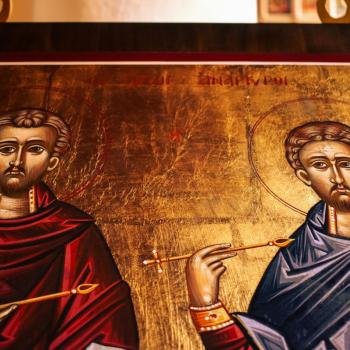When Praise Turns to Rant
An evangelical preacher, during Sunday worship, declares, “Before I turn to the Word, I’m gonna do a diatribe.” This diatribe was laced with vitriol, secular politics, anti-Covid conspiracy news, and a serious mistrust and dislike for liberals. This is the opposite of praise.
Look at Psalm 22. This is the hard-nosed, authentic, tough praise of the people of God. True praise includes lament. The key to the meaning of praise lies in the person addressed: “My God, my God.” Superficial praise expresses no lament, sorrow, grief, or pain. Yet we live in a pain-filled world. Praise goes deeper than a chorus of seven words repeated eleven times.
“My God, My God!”
This praise represents an act of defiance. Despite what has happened, I am determined to still address God as “My God.” If I am out of luck, I will praise him with white knuckled intensity and gritted teeth. If I am facing death, I will praise him in my last breath. If I am being tortured, I will praise him.
Jesus never promised us success in exchange for faithfulness. If we think success is an indication of God’s blessings, we may not be telling the whole story. Sometimes those who faithfully fail or also blessed of God.
Success and superficial praise become a thin gruel for the journey into the wilderness of suffering.
Here is cross-inflicted praise. The prophet Habakkuk approaches the praise content of Psalm 22.
Though the fig tree does not blossom,
and no fruit is on the vines;
though the produce of the olive fails
and the fields yield no food;
though the flock is cut off from the fold
and there is no herd in the stalls,
yet I will rejoice in the Lord;
I will exult in the God of my salvation.
God, the Lord, is my strength;
he makes my feet like the feet of a deer,
and makes me tread upon the heights (Habakkuk 3:17 – 19).
Bring the lament of Habakkuk up to date, make it real. Our worship of Money, with a capital M, will make this modern version of praise difficult. The words will not form easily on our lips, the syllables will die in our throats, but let’s give it a try:
Though my stock portfolio plummets in value
and my investments are in the tank;
Though my job is out-sourced
and there’s no money in the bank,
Though the wife has left me
and my children forsaken me
Yet I will rejoice in the Lord.
Walter Brueggemann, in The Psalms and the Life of Faith says, “We have forgotten God and God’s ways.” As Psalm 1 puts it, “We have been heedless.”
Praise in the Dark
The harsh praise of the opening of Psalm 22 – an opening on darkness and despair – turns at the end to praise of God and our relationship with God, a relationship threatened by now strengthened.
The psalmist cries, “I shall live for him.” Living for God had led to moments of God-forsakenness. Jesus is the primary example of the experience. He lived for God. “Not my will but yours.” And they crucified him. His entire life devoted to God and they crucified him.
“I shall live for him.” Are we ready for this vow?
The change in the psalmist causes a movement from self-reflection to thoughts of others. Future generations will be told about the Lord – an evangelical call to proclaim.
Our Christian culture has not been much for the hard praise of Psalm 22. We like to skip the darkness and enjoy the light. We are a people of “still waters” and “green pastures” not “the valley of the shadow of death?

Photo by Ákos Szabó
But I have noticed how the loss of lament in our Christian praise has been replaced with what I call the “rant.” Angry Christian voices now rant about issues in the culture wars. They speak about being ignored, left out, and being tired of our secular culture. When Christians exchange praise for rant, we have a problem.
The Difference Between Praise and Rant
Israel worked out a pattern of rhetoric that shaped their anguish and brought it to expression so that it could be dealt with appropriately. Israel typically met existence head-on, viewing them as faith crises, times of wondering about God and God’s fidelity, but also as faith opportunities, times to articulate late again its expectations and assumptions, times to reformulate its position vis-a-vis the world of hurt and the God of faithfulness.
The lament is offered to God as prayer; the rant is offered in opposition to the culture, situation, and the alleged enemies. The refusal to deal with anger, hatred, grief, and resentment in the liturgy means we express our emotions in politics. Demagogues takes advantage of our refusal to face our emotions in worship by enticing us into false expressions of their ability to save us.
The lament marks us at our best; the rant at our worst. Praise without lament is one-sided, romantic, and superficial.
Never turn hurt into a self-monologue. “My God” is a dialogue. God is still in the frame.













